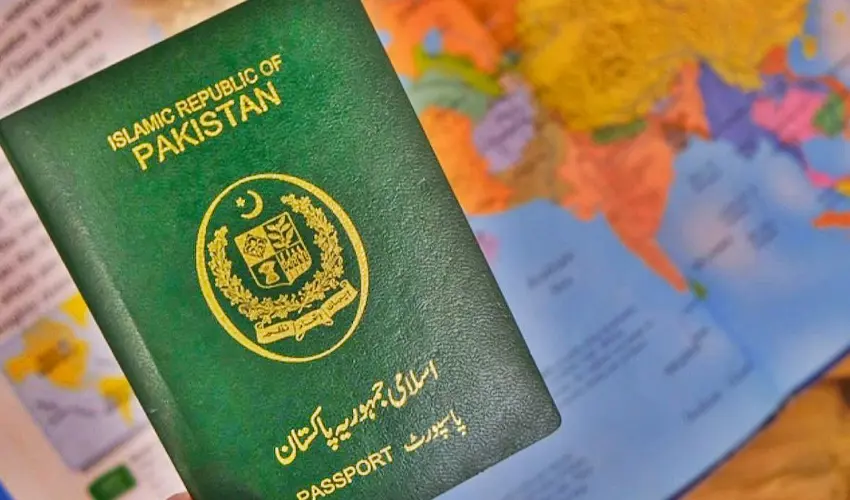
For decades, the Pakistani passport has languished near the bottom of global passport rankings, a symbol of limited international mobility for its citizens.1 However, recent developments, particularly in 2024 and 2025, indicate a significant and promising shift.2 Driven by concerted diplomatic efforts, enhanced security features, and strategic bilateral agreements, Pakistan's "green passport" is steadily improving its standing on the global stage. This upward trajectory, while still facing challenges, is gradually unlocking greater travel freedom for Pakistanis and reflects a renewed commitment by the government to bolster the nation's international image and connectivity.3
The Historical Context of Pakistan's Passport Ranking:
To appreciate the current improvements, it's crucial to understand the historical context. For many years, the Pakistani passport consistently ranked among the weakest globally.Factors contributing to this low standing were complex and multi-faceted, including geopolitical considerations, perceived security risks, and a lack of robust bilateral agreements for visa-free travel. This limited mobility had tangible consequences for Pakistani citizens, particularly those engaged in business, academia, or simply seeking to explore the world. The stringent visa requirements and often lengthy, arduous application processes acted as significant deterrents, impacting economic opportunities, academic pursuits, and cultural exchange.
The Recent Leap: A Shift in Trajectory:
The most recent Henley Passport Index rankings for 2025 have brought welcome news for Pakistan. The Pakistani passport has reportedly climbed to the 100th position globally, granting visa-free or visa-on-arrival access to 32 countries. This marks a notable improvement from its 113th position in 2021 and a consistent upward trend from 108th in 2022, 106th in 2023, and 101st in 2024. This positive momentum is not merely a statistical anomaly but a reflection of deliberate strategic initiatives.
Diplomatic Outreach and Bilateral Agreements:
A significant driver of the improved ranking is Pakistan's intensified diplomatic engagement.6 The government has actively pursued new bilateral agreements aimed at easing visa restrictions. A prime example is the recent agreement with the United Arab Emirates (UAE), which allows holders of diplomatic and official passports from both nations to travel visa-free.7 While this specific agreement doesn't yet extend to ordinary passport holders, it signifies a broader willingness to foster stronger international ties and negotiate similar arrangements for the general public in the future. Such high-level agreements often lay the groundwork for broader visa facilitation.
Enhanced Passport Security and Technology:
The Directorate General of Immigration and Passports has played a crucial role by introducing advanced security features.8 The implementation of e-passports equipped with contactless NFC chips, complying with International Civil Aviation Organization (ICAO) standards, has significantly enhanced the passport's credibility and security.9 These technological upgrades make the Pakistani passport more reliable and less susceptible to fraud, which is a key factor for other nations when considering visa facilitations. The planned operationalization of e-gates at major Pakistani airports will further streamline immigration for e-passport holders, improving efficiency and international perception.10
Improved Service Delivery and Backlog Clearance:
Addressing long-standing issues, the Directorate General of Immigration and Passports has successfully eliminated the nationwide passport backlog. This ensures timely processing of applications, a crucial step in demonstrating administrative efficiency and reliability. The establishment of modern facilities and the introduction of online passport services, including the "Passport Fee Asaan" app, further simplify the application process for both domestic and overseas Pakistanis. These improvements in service delivery contribute to a more positive overall impression of Pakistan's passport administration.
Focus on International Image: The Pakistani government, particularly the Interior Ministry, has openly expressed its commitment to improving the country's international profile and the value of its passport.11 Statements from officials, like Interior Minister Mohsin Naqvi emphasizing pride in the "green passport" and ongoing efforts to expand global mobility, signal a strategic priority.12 While concrete details on all initiatives may not be public, this stated intent creates a conducive environment for diplomatic breakthroughs.
Countries Offering Visa-Free or Visa-on-Arrival Access:
.webp)
As of July 2025, Pakistani passport holders can now access 32 countries visa-free or with visa-on-arrival. While the list primarily includes destinations in the Caribbean, Africa, Oceania, and Southeast Asia, these opportunities represent significant progress. Examples of countries offering such access include Dominica (up to 180 days visa-free), Haiti (up to 90 days visa-free), Micronesia (up to 30 days visa-free), and Saint Vincent and the Grenadines (up to 30 days visa-free).13 This expanding list, though modest compared to top-ranked passports, offers tangible benefits for Pakistani travelers.
Benefits of an Improved Passport Ranking:
The implications of an improved passport ranking extend far beyond mere travel convenience:
Enhanced Business and Economic Opportunities:
For Pakistan's business community, easier visa access is paramount. It facilitates trade, investment, and engagement in global markets. Reduced bureaucratic hurdles mean more frequent and efficient travel for entrepreneurs, exporters, and investors, ultimately contributing to economic growth and job creation. The concerns raised by the Karachi Chamber of Commerce and Industry (KCCI) regarding limited international mobility underscore the critical importance of this aspect.
Boost to Tourism and Cultural Exchange:
Increased visa-free access makes Pakistan a more attractive and accessible destination for international visitors. Conversely, it allows Pakistanis to explore diverse cultures and destinations, fostering global understanding and people-to-people connections. This can also lead to an influx of foreign currency and contribute to the tourism sector.
Improved Global Perception and Soft Power:
A strong passport is a testament to a country's stability, security, and diplomatic standing. As Pakistan's passport ranking improves, it sends a positive signal to the international community, potentially attracting more foreign investment, strengthening diplomatic ties, and improving its overall soft power.14 It reflects a nation that is seen as less of a security risk and more integrated into the global community.
Greater Mobility for Professionals and Students:
For Pakistani professionals seeking international collaborations or students pursuing higher education abroad, easier visa processes are invaluable. It reduces stress, saves time and money, and allows them to focus on their primary objectives. This can also help in combating brain drain by making it easier for Pakistanis to return and contribute to their homeland after gaining international experience.
Enhanced National Pride:
For ordinary citizens, the ability to travel more freely instills a sense of national pride and opens up new possibilities for personal growth and exploration. It reinforces the idea of Pakistan as a globally connected and respected nation.
Challenges and the Path Forward:
Despite the encouraging progress, significant challenges remain for Pakistan to further elevate its passport ranking:
Perceptions and Security Concerns:
Historical perceptions and ongoing security concerns, whether real or perceived, continue to influence visa policies of many countries towards Pakistan. Addressing these requires sustained efforts in national security, counter-terrorism, and effective communication to project a more accurate and positive image of the country.15
Economic Stability and Governance:
A strong economy and robust governance are often correlated with a powerful passport. Continued efforts to ensure economic stability, transparency, and the rule of law will naturally enhance Pakistan's standing and, consequently, its passport power.
Expanding Visa-Free Agreements for Ordinary Passports:
While diplomatic and official passport exemptions are a good start, the real impact on the majority of citizens will come from expanding visa-free or visa-on-arrival agreements for ordinary passport holders. This requires persistent and strategic negotiations with a wider range of countries.
Public Awareness and Compliance:
Ensuring that Pakistani citizens are aware of the visa requirements for various countries and comply with immigration laws is also crucial. Any instances of overstaying or violating visa regulations can negatively impact future negotiations for visa facilitation.
Long-Term Vision and Consistency:
Sustained improvement requires a long-term vision and consistent foreign policy. The government needs to maintain its focus on this objective, irrespective of political changes, to build enduring trust and relationships with other nations.
Conclusion:
The recent improvements in Pakistan's passport ranking are a testament to the nation's evolving diplomatic landscape and a dedicated effort to enhance its global standing. The ascent to the 100th position in the Henley Passport Index, with visa-free access to 32 countries, signifies a gradual but significant step towards greater international mobility for Pakistani citizens.16 While the journey is still ongoing and challenges persist, the commitment to modernizing passport infrastructure, streamlining services, and forging stronger bilateral ties provides a hopeful outlook. As Pakistan continues to project a more stable, secure, and economically vibrant image on the global stage, its "green passport" is poised to become an even greater source of pride and opportunity for its people, truly reflecting a nation increasingly connected and respected in the international community. The proactive approach demonstrated in recent years, coupled with a focus on both hard and soft diplomacy, holds the key to unlocking the full potential of Pakistan's passport and ensuring its continued upward trajectory in the years to come.
;More Travel News
-
 18-Apr-2024Indians getting offended by Maldives and now boycotting to travel there
18-Apr-2024Indians getting offended by Maldives and now boycotting to travel there -
 02-Nov-2021The 15 day mandatory interval between two Umrah has been cancelled
02-Nov-2021The 15 day mandatory interval between two Umrah has been cancelled -
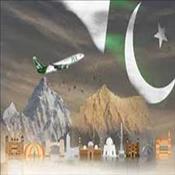 13-Jun-2019New Visa Policy of Pakistan
13-Jun-2019New Visa Policy of Pakistan -
 27-May-2025Staying Healthy on Holy Ground: Singapore Updates Haj and Umrah Vaccination Requirements
27-May-2025Staying Healthy on Holy Ground: Singapore Updates Haj and Umrah Vaccination Requirements -
 16-Oct-2021Looking for Best Destinations save up to 15% on Flights
16-Oct-2021Looking for Best Destinations save up to 15% on Flights -
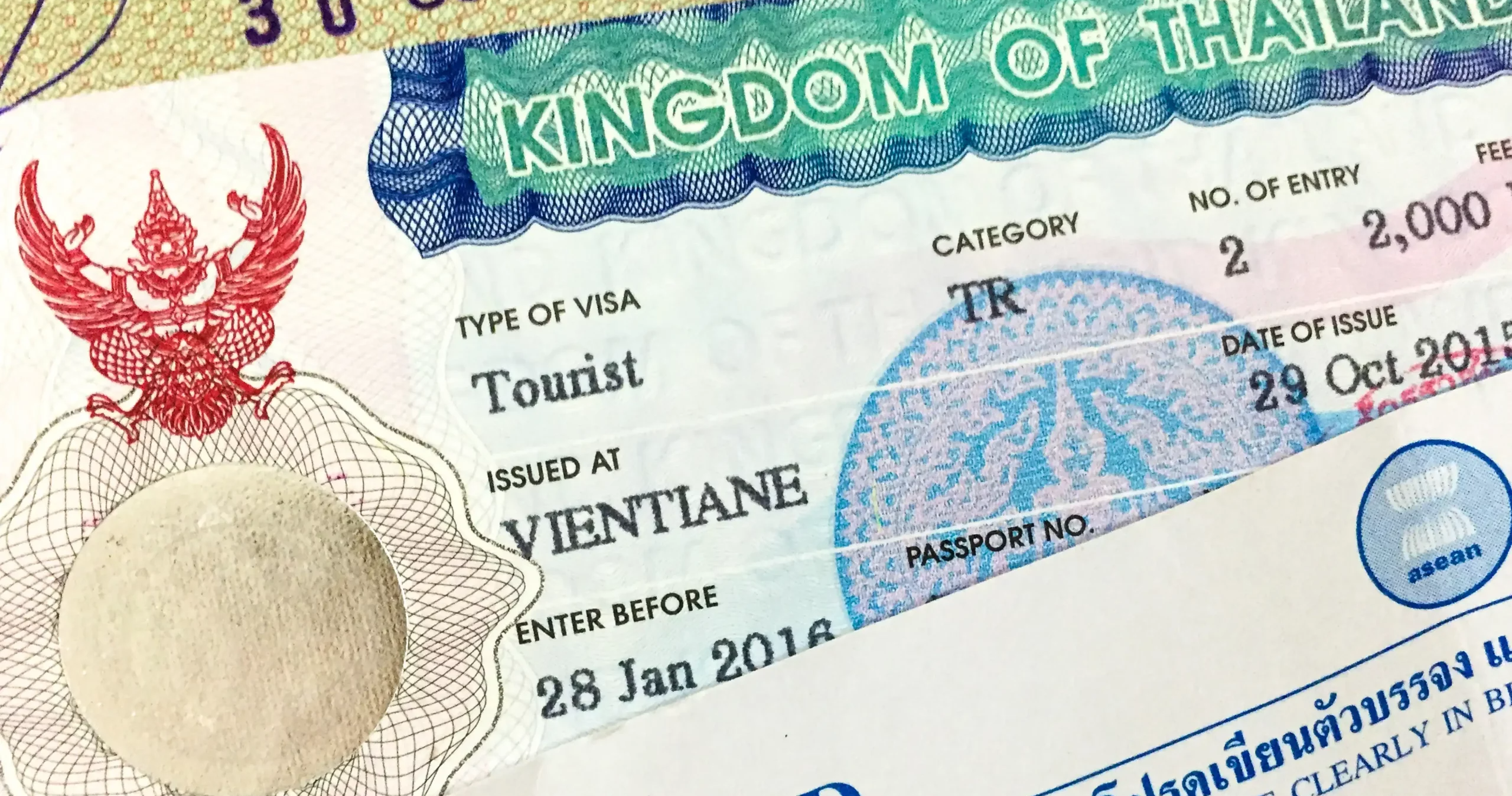 19-Mar-2025Thailand Plans to Cut Tourists’ Visa-Free Stays to 30 Days
19-Mar-2025Thailand Plans to Cut Tourists’ Visa-Free Stays to 30 Days -
 27-Jun-2022PIA Resumes Flights for Kaula Lumpur
27-Jun-2022PIA Resumes Flights for Kaula Lumpur -
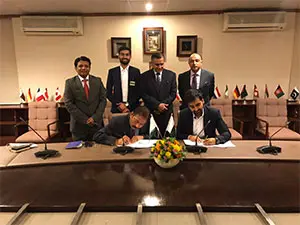 13-Apr-2025PIA Privatization Faces Further Delays, Deadline Extended to December 2025
13-Apr-2025PIA Privatization Faces Further Delays, Deadline Extended to December 2025 -
 18-Apr-2019List of Important Things to Keep in your Bag while Travelling to Pakistan
18-Apr-2019List of Important Things to Keep in your Bag while Travelling to Pakistan -
 05-Aug-2020After Successful Completion Of Hajj Operation, Pilgrims Are Supposed To Perform Umrah With Precautions
05-Aug-2020After Successful Completion Of Hajj Operation, Pilgrims Are Supposed To Perform Umrah With Precautions -
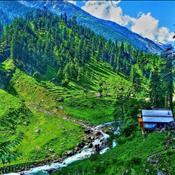 20-Aug-2020Pakistan Government Decides To Develop Tourist Places Across The Country
20-Aug-2020Pakistan Government Decides To Develop Tourist Places Across The Country -
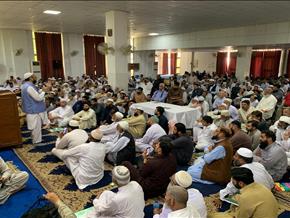 17-Jan-2025Hajj 2025 Training Schedule Has Been Announced by the Ministry of Religious Affairs
17-Jan-2025Hajj 2025 Training Schedule Has Been Announced by the Ministry of Religious Affairs
